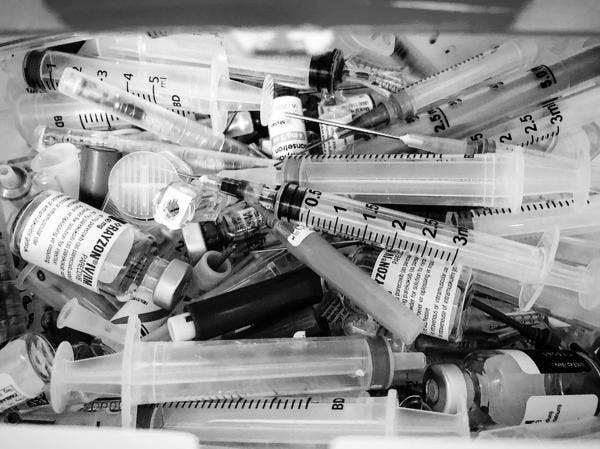Unsplash - Hennie Stander - https://unsplash.com/photos/nLbKVkm_2cw
À l'abri de la « guerre à la drogue »
La criminalisation, la stigmatisation et le racisme créent des obstacles à l'accès aux services, ce qui aggrave les problèmes de santé. Pour en savoir plus, en anglais, veuillez lire les informations ci-dessous.
By Tlaleng Mofokeng, UN Special Rapporteur on the right to health / Project Syndicate
While the world has been fixated on the results of the presidential election in the United States, less attention has been paid to another outcome of last Tuesday’s vote: significant steps toward decriminalization of drugs in several US states. One state – Oregon – is now set to abolish criminal penalties for possession of small quantities of all illegal drugs, from heroin to methamphetamine. This approach should be applauded – and adopted far more broadly.
According to 2018 data, about 269 million people around the world use illicit drugs, including 11 million who do so by intravenous injection – a method that carries additional risks. Nearly half of those who inject drugs are living with hepatitis C, and a staggering 1.4 million are living with HIV. According to the United Nations Office on Drugs and Crime, in 2017 alone, more than a half-million people died as a result of drug use. This is an entirely preventable tragedy, fueled by the cruel and counter-productive approach exemplified by the so-called war on drugs. Launched in the 1970s by US President Richard Nixon, drug possession today is a criminal offense in most countries, and users face severe social stigma.
The war logic is simple: the risk of harsh punishment will act as an effective deterrent, causing drug use to diminish. But this isn’t what happens at all. Despite increasingly punitive approaches, global drug sales and use continue to increase, causing more overdoses, HIV, hepatitis C, and tuberculosis.
The threat of punishment and discrimination doesn’t drive people to quit or avoid drugs, but rather to hide their use, including from their doctors. By discouraging those who use drugs from engaging with health systems, criminalization and stigmatization – as well as racism, which compounds drug-related discrimination – contribute to negative health outcomes for individuals and communities that extend far beyond the drugs themselves.
There is a better way. Rather than attempting to force people to forswear all drug use, we should be attempting to minimize its negative impact on their health and well-being. So-called harm-reduction interventions include needle-exchange programs, whereby people can access sterile needles and syringes; drug-consumption rooms, where people can safely use drugs without risking an overdose; opioid agonist therapy, such as methadone replacement; and housing and employment initiatives.
Sujets
Régions
Profils associés
- United Nations Office on Drugs and Crime (UNODC)
- Harm Reduction International (HRI)
